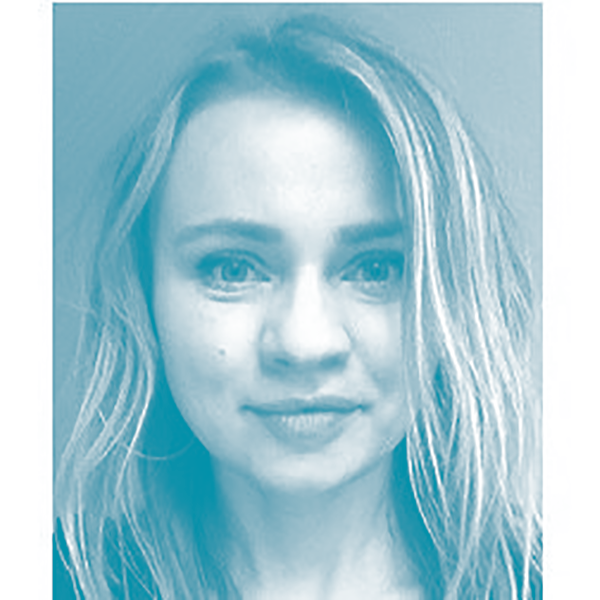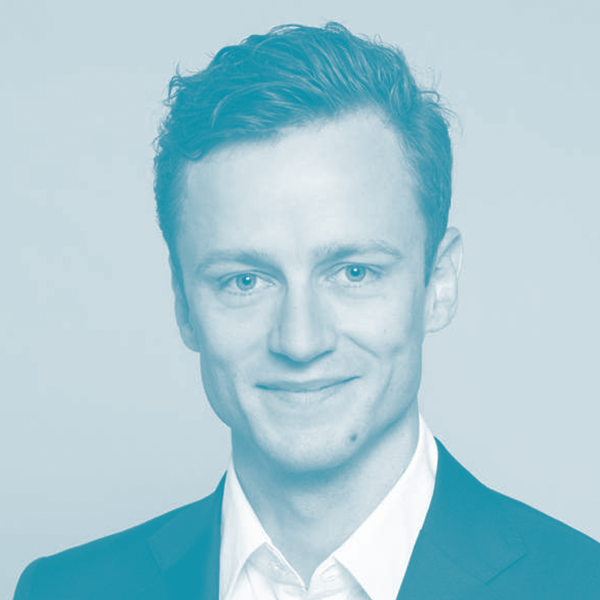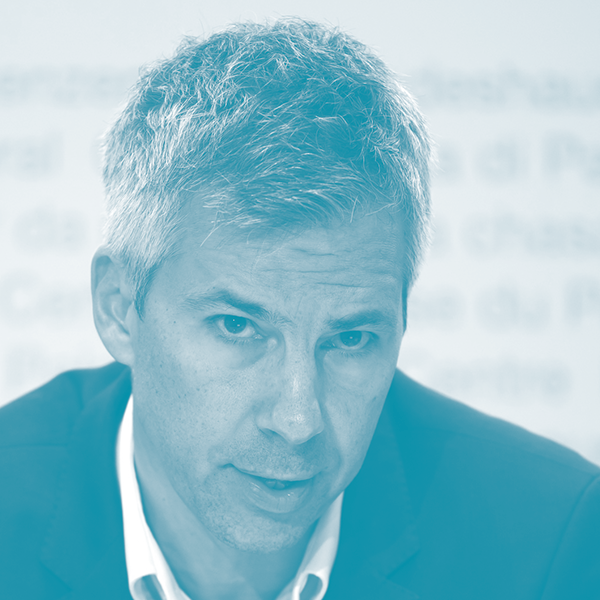Anticipating the Agentic Era: Assessing the Disruptions by AI Agents

November 19th, 2025, 09h30-17h30,
Starling Hotel,
1025 Saint-Sulpice
Introduction
As we enter the agentic era, AI agents are increasingly integrated into various aspects of modern life, performing tasks that range from personal assistance and financial management to complex decision-making in industries. These AI agents, driven by powerful algorithms, are transforming how we interact with technology and each other. However, their proliferation also introduces significant challenges, such as cybersecurity vulnerabilities, economic and business disruptions, ethical dilemmas, and privacy concerns. This conference aims to delve into how AI agents could challenge existing systems and structures while exploring strategies to mitigate these threats effectively. Industry leaders, researchers and academics, and stakeholders will convene to discuss the implications of AI agents and collaborate on building a resilient future that harnesses their potential responsibly.
This event is organized by the Center for Digital Trust (C4DT), EPFL.
Objectives
- Assess the transformative impact of AI agents on cybersecurity, the economy, business models, governance, regulation, and society.
- Facilitate expert dialogue on the risks, ethical challenges, and opportunities introduced by agentic systems.
- Discuss strategies and frameworks for safely and responsibly deploying, governing, and regulating autonomous AI agents.
Discussion points
1. Evolving Cyber Threats in the Age of AI Agents
Explore the unique cybersecurity risks introduced by autonomous AI agents, examining model, code, and prompt-based vulnerabilities as well as new modalities of data exfiltration and privacy breaches. Through expert talks and case studies, participants will discuss strategies and solutions to address the increasingly complex threat landscape created by agentic systems.
2. Evaluation and Benchmarking of AI Agents
Examine the critical importance of robust evaluation and transparent benchmarking for AI agents, discussing methodologies to assess their capabilities, reliability, and trustworthiness. The conference will address how standardized evaluation practices can guide safer deployment, continuous improvement, and informed oversight of agentic systems.
3. AI Agents and the Transformation of the Workforce
Examine the profound impact of AI agents on the job market, discussing how automation is shifting employment patterns and redefining the skills required across industries. The conference aims to address the challenges of workforce displacement and to explore forward-thinking approaches for worker reskilling and policy adaptation.
4. Accelerating Innovation and Transforming Education & Research
Discuss how AI agents are compressing research timelines and transforming educational and research paradigms, examining both the tremendous opportunities for faster knowledge creation and the challenges to established teaching and learning models. The session will explore new frameworks for harnessing these advancements while addressing potential risks and inequities.
5. Governing Algorithms: Accountability in Agentic Systems
Examine the governance challenges that arise as AI agents become increasingly autonomous, exploring frameworks for transparency, oversight, and assigning responsibility for agentic actions. Stakeholders will discuss how to address gaps in accountability and ensure robust mechanisms for remediation in cases of harm or malfunction.
6. Regulatory Frontiers: Crafting Laws for Autonomous Agents
Address the limitations of traditional regulatory approaches in the face of rapidly developing AI agents, exploring innovative legal frameworks and adaptive policy tools. The conference will discuss how best to regulate agentic systems to ensure safety, fairness, and ethical deployment without curtailing beneficial innovation.
7. Navigating the Autonomy-Control Spectrum
Discuss the growing tension between granting AI agents autonomy and retaining essential human oversight, exploring methods to calibrate agentic independence with safety and controllability. The conference will examine best practices and scenarios to address potential risks associated with unchecked or misaligned autonomy.
8. Governance and Safety in Self-Improving Agents
Explore the unique governance challenges and safety concerns posed by AI agents capable of recursive self-improvement. The participants will discuss strategies for maintaining operational control, ensuring transparency in agent behavior, and coordinating multi-stakeholder governance to prevent unintended consequences and safeguard societal interests as these agents evolve.
Agenda
09h00
Registration and Welcome Coffee
09h30
Welcome and Introductory Remarks
by David Viollier, C4DT
Part 1 – Tech & Cybersecurity
Begin the conference by exploring the emerging technical challenges and cybersecurity risks posed by autonomous AI agents, focusing on vulnerabilities, attack vectors, and innovative solutions such as autonomous bug fixing to strengthen system resilience and security.
09h35
Talk: AI Coding Agent Vulnerabilities
by Nils Amiet, Lead Prototyping Engineer, Kudelski Security
10h00
Talk: The Ever-Expanding Attack Surface: How Exploitable is Your AI Agent?
by Julia Bazinska, Senior Research Engineer Lakera AI
10h25
Talk: Code Agents in the Real World
by Mark Müller, Co-Founder and CTO, LogicStar AI
10h50
Coffee Break
Part 2 – Evaluation & Benchmarking
Turn attention to the essential practices of evaluating and benchmarking AI agents, highlighting why transparency, observability, and robust metrics are vital for trustworthy and safe deployment.
11h20
Talk: Building Trust in Agentic Systems – Thomson Reuters’ Approach to Evaluation and Observability
by Lea Strohm, Senior Technical Product Manager, Thomson Reuters
11h45
Panel 1: Can We Trust AI Agents? Rigorously Evaluating & Benchmarking Agentic Systems
“You can’t trust what you can’t observe and evaluate, and you can’t improve what you don’t benchmark” – discussing the need for robust evaluation and transparent benchmarking to ensure the trustworthiness of agentic systems.
Moderated by: Imad Aad, C4DT
Panelists
- Julia Bazinska, Senior Research Engineer, Lakera AI
- Prof. Martin Jaggi, Head of Machine Learning and Optimization Laboratory, EPFL
- Mark Müller, Co-Founder and CTO, LogicStar AI
- Lea Strohm, Senior Technical Product Manager, Thomson Reuters
12h30
Lunch
Part 3 – Economy, Business and Innovation
Explore the transformative impact of AI agents on the economy, business models, and innovation dynamics, discussing shifts in the labor market, disruptions to established industries, and the acceleration of research and learning processes.
13h30
Talk: Economic Impact of AI on Job Market, Extrapolated to AI agents
by Prof. Marcel Salathé, Co-Director, EPFL AI Center
13h55
Talk: Exploring Business Model Disruption in Professional Services
by Mark Meuldijk, Executive Management Consultant – AI & Data – Digital Assurance, PwC Switzerland
14h20
Talk: Disrupted Timelines – How AI Agents Accelerate Development and Launch Cycles
by Kevin O’Sullivan & Robert Jakob, Co-Directors, ETHZ Agentic Systems Lab
14h45
Coffee Break
Part 4 – Accountability, Governance and Regulation
Address the complexities of governing, regulating, and assigning accountability within agentic systems, as both legal and ethical considerations are reshaped by the rise of autonomous AI agents. The discussion culminates with a panel exploring frameworks for effective oversight, responsibility, and redress.
15h15
Talk: Testing Autonomy – How Regulatory Sandboxes Can Support the Governance of AI Agents
by Clarissa Valli Büttow, FNS Senior Researcher, UNIL
15h40
Panel 2: Accountability, Governance and Regulation of AI Agents
- How should agentic systems be managed and monitored? What reporting is required?
- Who is responsible for the design, functioning, and decisions of these agents?
- How to enforce governance and accountability? What happens in case of harm or failure?
Moderated by: Katherine Loh, C4DT
Panelists
- Magdalena Barska, Senior Manager – Technology & Data Management, Accenture
- Michel Jaccard, Founder, id est avocats
- Petar Tsankov, CEO and Co-Founder, LatticeFlow AI
- Clarissa Valli Büttow, FNS Senior Researcher, UNIL
Part 5 – Visionary
Conclude with a forward-looking dialogue on the future of agency and autonomy in AI, tackling profound questions of governance, safety, and control amidst the rise of self-improving, increasingly independent agents.
16h25
Visionary Panel: Agency, Autonomy, and Recursive Self-Improvement – Governance and Safety Concerns
- Autonomy versus Control
- Paradigm Shift: The Disruptive Impact of Recursive Self-Improvement in AI Agents
Moderated by: Daniel Saraga, Founder, Saraga Communications
Panelists
- Prof. Andrea Cavallaro, Head of L’IDIAP Laboratory, EPFL
- Mark Meuldijk, Executive Management Consultant, PwC Switzerland
- Mark Müller, Co-Founder and CTO, LogicStar AI
- [to be confirmed]
17h10
Concluding Remarks
by David Viollier, C4DT
17h15
Networking Reception
Speakers

Nils Amiet
Lead Prototyping Engineer, Kudelski Security
Nils is a Security Researcher at Kudelski Security, specializing in AI security, fuzzing, privacy, and internet scanning. He has presented at Black Hat, DEFCON, and CCC, and authored fuzzomatic, an AI-powered Rust fuzzer. He has uncovered critical vulnerabilities in popular AI tools and helped build a distributed RSA key-breaking system. Nils also contributes to Kudelski’s research blog.
Magdalena Barska
Senior Manager – Technology & Data Management, Accenture
Magdalena is a Senior Manager at Accenture, based in Geneva. She specializes in driving innovative data solutions, ensuring robust governance frameworks, Magdalena is dedicated to leveraging data to empower organizations, optimize processes, and achieve strategic goals. She holds a PhD in quantitative methods from Warsaw School of Economics. With her experience working with global companies across many sectors, from life sciences to financial services, Magda brings to this panel her perspectives on helping her clients embed accountability throughout the AI lifecycle using transparent controls and regular audits to proactively manage risks.


Julia Bazinska
Senior Research Engineer, Lakera AI
Julia is a Senior Research Engineer at Lakera AI. Her career trajectory includes internships at Google, DeepMind, and IBM Research. She earned her Bachelor’s degree in computer science from the University of Warsaw and completed her Master’s at ETH Zurich. Her professional interests are in Machine Learning for Natural Language Processing, AI security, and performance optimization of ML systems. Lakera AI is a frontrunner in AI security, known for empowering developers to build secure AI applications and agents with Lakera Guard, which protects against prompt injections, data leaks, and other risks. Lakera was recently acquired by Check Point Software.
Andrea Cavallaro
Professor EPFL, Head of L’IDIAP Laboratory
Prof. Andrea Cavallaro is Professor at EPFL, where he leads innovative research in the fields of artificial intelligence, machine learning, and signal processing. Previously the Director of the Centre for Intelligent Sensing at Queen Mary University of London, he has a distinguished academic record and is recognized for his contributions to audio-visual processing, computer vision, and multimodal perception.
With a strong focus on developing technologies for robust and trustworthy intelligent systems, Prof. Cavallaro’s research bridges fundamental advances with real-world applications in areas such as surveillance, multimedia content analysis, and human-computer interaction. He is committed to advancing interdisciplinary collaborations and nurturing the next generation of researchers in the rapidly evolving fields of AI and signal processing.


Michel Jaccard
Founder, id est avocats
Michel Jaccard is the founder of id est avocats, a Swiss-based, independent law firm focusing on corporate and technology matters. For the past 25 years, he has been involved in corporate finance and M&A deals in Switzerland and abroad.
Michel provides counsel to companies on data protection, and cybersecurity. He resolves disputes in complex business projects involving advanced technologies and intellectual property licensing, including open-source and open-access strategies.
Michel holds a JD and PhD from the University of Lausanne and an LLM from Columbia Law School. Michel is admitted to practice in Switzerland and New York.
Martin Jaggi
Professor EPFL, Head of Machine Learning and Optimization Laboratory
Martin Jaggi is an Associate Professor at EPFL, heading the Machine Learning and Optimization Laboratory (MLO). Before that, he was a post-doctoral researcher at ETH Zurich, at the Simons Institute in Berkeley, and at École Polytechnique in Paris. He earned his PhD in Machine Learning and Optimization from ETH Zurich in 2011, and a MSc in Mathematics also from ETH Zurich.
Martin is a member of the Steering Committee of the Swiss AI Initiative and contributed to the development of Apertus, Switzerland’s fully open, transparent, multilingual language model.


Robert Jakob
Co-Director, ETHZ Agentic Systems Lab
Dr. Robert Jakob is Co-Director of the ETH Agentic Systems Lab and a postdoctoral researcher at the Chair of Information Management at ETH Zurich. He completed his PhD at ETH Zurich, focusing on applied machine learning in digital health, and previously conducted research at Harvard University’s Statistical Reinforcement Learning Lab and at the SEC Future Health Technologies Lab at the National University of Singapore (NUS). With the Agentic Systems Lab, he is building a hub for Agentic AI within the ETH ecosystem, bringing together students, AI startups, researchers, and industry partners through targeted programs and hands-on collaborations.
Katherine Loh
Project Manager, Center for Digital Trust (C4DT), EPFL
Katherine Loh is a Project Manager for C4DT’s Agency team. She is helping C4DT build a global community of digital trust researchers and practitioners, through organizing events, connecting partners, and curating resources. Prior to joining EPFL, Katherine worked as a policy strategist in the international development domain, working with government, multilateral, industry and civil society organizations to articulate their responses to governance challenges posed by new technologies. Over time, she has witnessed the evolution of these challenges, from issues like mobile money deployment and small business digitalization to the future of work and mis- and disinformation. Katherine has a Masters in Economics from the University of California at Los Angeles.


Mark Meuldjik
Executive Management Consultant – AI & Data – Digital Assurance, PwC Switzerland
Mark is a senior Director in Digital Assurance & Trust services at PwC Switzerland. With over 25 years of experience spanning global IT audit, advanced analytics, and risk consulting across various sectors, Mark brings a specific combination of cross-industry practical risk & AI experience to the field. During his career, Mark has guided audit & technology teams to integrate data, advanced analytics, and AI applications into audit processes, and he setup an AI Centre of Excellence at a leading professional services firm, supporting both internal digital transformation and developing client AI strategies and roadmaps. In his current role, he specializes in AI governance & control frameworks, proving assurance over AI, as well as guiding AI transformation within audit and risk functions.
Mark Müller
Co-Founder and CTO, LogicStar AI
Dr. Mark Niklas Müller is a Co-Founder and CTO of LogicStar AI, where he leads the development of autonomous code agents for self-healing software systems. He pioneered methods for benchmarking software agent capabilities, including automated benchmark generation and the widely used SWT-Bench. Before founding LogicStar AI, he completed his PhD and Postdoctoral research at the Secure, Reliable, and Intelligent Systems (SRI) Lab at ETH Zürich under Prof. Martin Vechev, focusing on provable guarantees for machine learning systems and the intersection of AI and code.


Kevin O’Sullivan
Co-Director, ETHZ Agentic Systems Lab
Kevin O’Sullivan is a postdoctoral researcher at the Chair of Information Management at ETH Zurich and co-director of the ETH Agentic Systems Lab. He completed his PhD at ETH Zurich on scalable digital interventions for sustainable food behaviours. Building on the Chair’s strong research record in digital transformation and machine learning, the newly formed Agentic Systems Lab extends this work by exploring how business and research will operate in an era of Agentic AI.
Marcel Salathé
Professor EPFL, Co-Director, EPFL AI Center
Prof. Marcel Salathé is a renowned scientist at the intersection of health and computer science, currently serving as Professor and Co-Director of the EPFL AI Center. With a PhD in Biology and Environmental Sciences from ETH Zurich, he has held academic positions at Stanford University and Penn State before leading the Digital Epidemiology Lab at EPFL. Marcel is the founder of the EPFL Extension School, an initiative delivering high-quality online education in digital technology, and a strong advocate for lifelong learning in response to rapid technological advances.
An accomplished entrepreneur and innovator, Marcel founded AIcrowd.com, a leading AI challenge platform used by organizations such as OpenAI, Microsoft, and Google, and initiated the AMLD Intelligence Summit, one of Europe’s largest AI conferences.


Lea Strohm
Senior Technical Product Manager, Thomson Reuters
Lea has a multidisciplinary background in international relations and innovation studies, with a special interest in health innovation. She has conducted research on the implementation challenges of using AI in medicine, particularly in the field of medical imaging. Currently, Lea is a Senior Technical Product Manager on Thomson Reuters’ Enterprise AI Platform team, based in Zug, Switzerland, where she leads the design and delivery of enterprise-scale AI services to enable the creation of reliable, responsible, and trustworthy AI solutions. In this role, she focuses on developing and enhancing tools for AI evaluation to drive the adoption and continuous improvement of GenAI technologies across the organization.
Prior to joining Thomson Reuters, Lea worked at ethix – Lab for innovation ethics in Zurich, where she partnered with a variety of actors in the innovation ecosystem to assess ethical questions related to innovation in practical settings. Her multi-sector experience uniquely positions her at the intersection of technology, ethics, and policy, making her a key driver of responsible AI and innovation practices.
Petar Tsankov
CEO and Co-Founder, LatticeFlow AI
Petar is the co-founder and CEO of LatticeFlow AI. He holds a PhD from ETH Zurich, where he developed the first scalable frameworks for verifying the safety of deep neural networks, work that earned him the John Atanasoff Prize. Previously, he co-founded ChainSecurity, a leader in smart contract security, acquired by PwC. Under his leadership, LatticeFlow AI has received multiple awards, including the Swiss AI Award and recognition on the CB Insights AI100 list.


Clarissa Valli Büttow
FNS Senior Researcher, UNIL
Clarissa is a Senior Researcher and part-time lecturer at the Swiss Graduate School of Public Administration (IDHEAP), University of Lausanne. Her work explores the evolving relationship between public law and emerging technologies, with a particular focus on data governance, regulatory innovation, and the democratic implications of digital transformation. Her recent doctoral research, Public Sector Data Openness in the Crafting of the Data-driven Society, examined how regulation and innovation co-shape the development of data-driven societies. She continues to investigate how legal frameworks respond to technological change, especially in the context of AI governance and digital transformation.